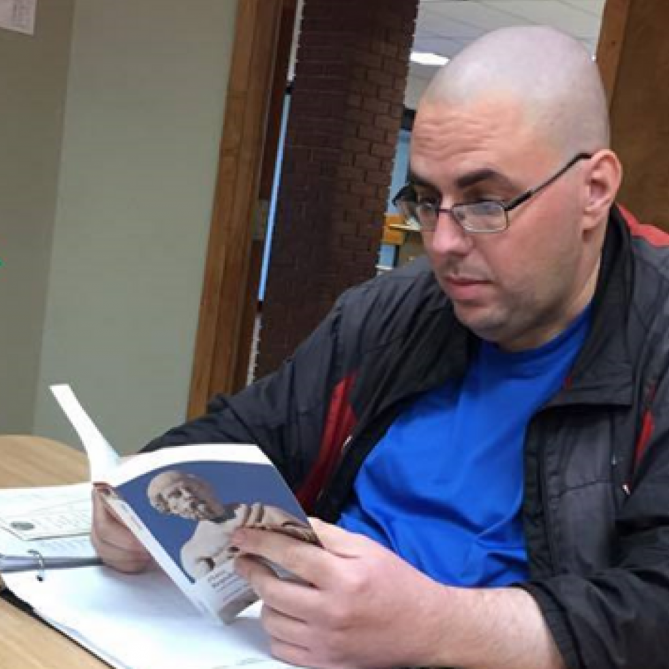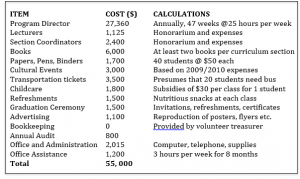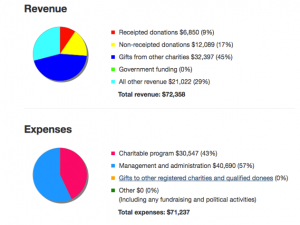
Halifax Humanities searches for new director
Mary Lu Redden retiring after 11 years on the job
This spring, Mary Lu Redden will walk away from the most important thing in her life, aside from her family, when she retires as director of the Halifax Humanities Society.
Redden is the second director in the charity’s 12-year history, which hired her after its pilot year. Over the past 11 years, Redden has watched the society develop and expand, its graduates learn and grow, and herself fall in love with her job.
Halifax Humanities is a registered charity “dedicated to enriching the lives of those living in material poverty, through education in the Humanities.” Its core program, Halifax Humanities 101, provides free and accessible classes to underprivileged community members on Tuesday and Thursday afternoons at the Halifax North Memorial Public Library.
The eight-month program has a “chronological curriculum focusing on ‘Great Books’ of Western culture.” Halifax Humanities also provides a seminar on Wednesday afternoons available to all graduates of its 101 program. Over the years, professors from eight different universities have volunteered to teach classes for the charity.
When Redden was first hired as director she taught a few classes as well, since she has a teaching background in English and philosophy. But she quickly realized she wasn’t interested in teaching, especially as her job evolved and she took on more and more duties.
As the only employee, Redden is responsible for every facet of the small charity. And on top of that responsibility, she attends every class.
“The main focus of my job, I think, is to ensure that the classroom setting is safe and supportive, because we do have students with a lot of vulnerabilities,” she says. “But also that I help people in their sort of intellectual journey. I’m there as a support, I ask questions in class that I think will help clarify things.”
Although attending class is the main focus of her job, Redden also recruits and support students, orders books, prepares reading material and classroom refreshments, and purchases bus tickets.
She fundraises, runs media campaigns, and maintains the program’s profile. And on top of all that, she works with “a number of community organizations involved in adult education, non-profit management, and poverty advocacy.
Her successor will need a diverse skillset to handle these diverse duties. “I think about it a lot. I do worry about it a bit,” Redden says with regards to the board hiring her replacement. “But I’m confident that they’ll find someone.”
Whomever the board chooses to replace Redden will need to make the most of limited assets:

This table shows Halifax Humanities’ budget for the 2010/2011 academic year, for a total budget of $55,000 and an average cost per student of $2,500 per year.
The budget has changed somewhat in the intervening years. For one thing, the director makes more money—Redden’s salary last year was $33,617. She is also the only compensated position at the charity. She still has two classroom volunteers to help her during the classes, but they are not on the payroll.
Halifax Humanities also has more money to work with now:

The figure above shows that from 2010 to 2015, the budget increased from $55,000 to $71,237.
Susan Dodd, an original board member, says Halifax Humanities was not always this financially stable. Dodd has done almost as much for the charity as Redden: taught classes, coordinated a section, sat as vice-chair, and fundraised, which was the most unfamiliar to her but also the most necessary.
“The first couple of years, as Mary Lu always reminds us, she basically was fundraising to pay her own wages. It was very financially unsteady,” says Dodd.
But that was partially by design, adds Dodd. “We don’t have government funding…and that in a way frees us to provide the curriculum that we want to provide. So we’re not bound to government legislated outcomes.”
Now that Halifax Humanities is gradually increasing its revenue, it is considering expanding into other types of programming. “We’ve talked quite a bit about possibly doing something in seniors’ buildings,” says Dodd.
She also mentions homeless youth and prisons as possible areas for expansion. “Anywhere that there are people hungry for intellectual life, and isolated… because of external barriers [such as poverty, mental illness, problems with housing, etc.].”
Halifax Humanities is already breaking down some of those barriers. The current courses are offered to “people who live on assistance, disability, pension, or with other financial constraints…those who seek a community beyond the isolation that can be imposed by economical, physical, and social barriers.”
According to Redden, the charity hopes that its students have an income below $24,000, and in fact most students make well below that. Because it serves underprivileged community members, Halifax Humanities must make its programs accessible.
One way it accomplishes this goal is by paying for transportation; in 2015 Halifax Humanities spent $3,452 on travel and vehicle expenses.
Tim Blades, a student in Halifax Humanities 101 this year, says the free transportation is imperative to accessibility. “In this day and age where the department of community services is cutting transportation, that alone is immense.”
Blades takes the bus to class from Dartmouth. So far, the program is living up to his lofty expectations. “I actually applied probably eight months before I should’ve. I would’ve taken it back then if I could,” he says. “It’s expanding my mind… really got my head spinning, in a good way.”
As the charity has grown, so have its avenues for fundraising. Dalhousie law students hold an annual event to raise money, and the charity has done marathon readings of Homer’s Odyssey.
For its tenth anniversary, Halifax Humanities self-published an anthology about the society called Each Book a Drum, and sold copies for funding.
In-kind donations, though, are perhaps the most vital to the charity’s continued success. Teachers volunteer their time, libraries volunteer classrooms, and St. George’s Church volunteers office space.
Dalhousie and St. Mary’s each provide $2,000 worth of books, which saves Halifax Humanities $4,000 out of the $6,000 worth of books they need.
Neptune Theatre, Opera Nova Scotia, the Symphony, and other cultural institutions provide tickets for Halifax Humanities students in order to open up privileged spaces for people who wouldn’t usually have opportunities to experience them.
“That keeps our budget really kind of manageable,” says Redden. “If we paid for meeting space, paid for office space, paid for all of our books, it would be much more costly to run this.”
As her career with Halifax Humanities comes to and end, Redden reflects on how working for the charity has transformed her. “It’s made me a deeper reader… I’m a more confident public speaker… and I think it’s made me more organized.” But more than that, “nothing in my life apart from being a wife and a mother has been as important to me as this job… It’s been an incredible labour of love for me.”






